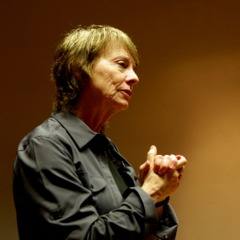Imagination Quotes - Page 105
"Henderson the Rain King". Book by Saul Bellow, Chapter 18, p. 271, 1959.
The imagination is a wonderful thing; it allows for all manner of undiscoverable sins.
Sarah Strohmeyer (2008). “Sweet Love”, p.119, Penguin
Sarah Fielding, Jane Collier (1754). “The Cry: A New Dramatic Fable”, p.175
Sarah Fielding, Jane Collier (fl. 1753) (1754). “The cry: a new dramatic fable : in two volumes”, p.80
avarice is especially, I suppose, a disease of the imagination.
Sara Coleridge Coleridge (1873). “Memoir and Letters of Sara Coleridge”, p.131
Samuel Taylor Coleridge (2015). “The Complete Works of Samuel Taylor Coleridge: Poetry, Plays, Literary Essays, Lectures, Autobiography and Letters (Classic Illustrated Edition): The Entire Opus of the English poet, literary critic and philosopher, including The Rime of the Ancient Mariner, Kubla Khan, Christabel, Lyrical Ballads, Conversation Poems and Biographia Literaria”, p.1465, e-artnow
Samuel Taylor Coleridge (2015). “The Complete Works of Samuel Taylor Coleridge: Poetry, Plays, Literary Essays, Lectures, Autobiography and Letters (Classic Illustrated Edition): The Entire Opus of the English poet, literary critic and philosopher, including The Rime of the Ancient Mariner, Kubla Khan, Christabel, Lyrical Ballads, Conversation Poems and Biographia Literaria”, p.4115, e-artnow
Samuel Taylor Coleridge, Henry Nelson Coleridge (1854). “The complete works of Samuel Taylor Coleridge: With an introductory essay upon his philosophical and theological opinions”, p.481
Samuel Taylor Coleridge, James Engell, Walter Jackson Bate (1984). “Biographia Literaria, Or, Biographical Sketches of My Literary Life and Opinions”, p.156, Princeton University Press
Samuel Taylor Coleridge, May Byron, William Hazlitt, James Gillman (2015). “Samuel Taylor Coleridge: The Man Behind The Lyrics (Illustrated Edition): Autobiographical Works (Memoirs, Complete Letters, Literary Introspection, Thoughts and Notes on Poetry); Including Extensive Biographies and Studies on S. T. Coleridge”, p.125, e-artnow
Samuel Taylor Coleridge (1880). “Miscellanies, æsthetic and literary: to which is added The theory of life, collected and arranged by T. Ashe”
Samuel Richardson, Sir Richard Phillips (1804). “The Correspondence of Samuel Richardson, Author of Pamela, Clarissa, and Sir Charles Grandison: Selected from the Original Manuscripts, Bequeathed by Him to His Family, to which are Prefixed, a Biographical Account of that Author, and Observations on His Writings”, p.263
Romances in general are calculated rather to fire the imagination, than to inform the judgment.
"A collection of the moral and instructive sentiments: a facsimile reproduction".
Samuel Richardson (1980). “A collection of the moral and instructive sentiments: a facsimile reproduction”, Scholars Facsimilies & Reprint
Samuel R. Delany (2011). “Einstein Intersection”, p.108, Wesleyan University Press
Samuel Johnson (1999). “Rasselas”, p.12, Wordsworth Editions







